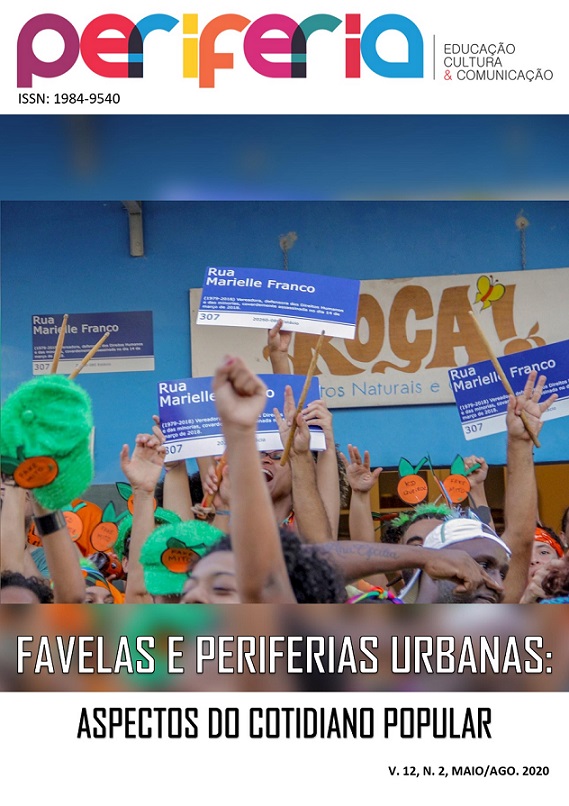MEMÓRIA NÃO SE REMOVE - Heritage as a Political Strategy Against Forced Eviction
DOI:
https://doi.org/10.12957/periferia.2020.48548Palavras-chave:
Favelas, Forced Eviction, Heritage, Museums, Stigma, Respectability Politics, TourismResumo
Using ethnographic methods, this paper discusses how residents of informal settlements called favelas use creative means to avoid forced eviction in Rio de Janeiro. Favela evictions are justified through a myriad of reasonings: that they harm the environment, breed crime and pollution, and that they are aesthetically unsightly. Proponents of favela removal also justify evictions through the belief that favelas are places without culture or history. Therefore, according to this logic, favelas do not need to be protected or spared from eviction. In response, residents of favelas under threat of eviction have attempted to subvert this narrative by rebranding themselves as heritage and tourism centres. Specifically, this paper explains how certain favela communities have created museums and have initiated tourism projects in order to prove that their communities have cultures and histories worth preserving. The paper also presents the argument that these rebranding activities based on heritage and tourism represent a politics of respectability.
Downloads
Publicado
Como Citar
Edição
Seção
Licença
Autores que publicam nesta revista concordam com os seguintes termos:- Autores mantém os direitos autorais e concedem à revista o direito de primeira publicação, com o trabalho simultaneamente licenciado sob a Creative Commons Attribution License que permitindo o compartilhamento do trabalho com reconhecimento da autoria do trabalho e publicação inicial nesta revista.
- Autores têm autorização para assumir contratos adicionais separadamente, para distribuição não-exclusiva da versão do trabalho publicada nesta revista (ex.: publicar em repositório institucional ou como capítulo de livro), com reconhecimento de autoria e publicação inicial nesta revista.
- Autores têm permissão e são estimulados a publicar e distribuir seu trabalho online (ex.: em repositórios institucionais ou na sua página pessoal) a qualquer ponto antes ou durante o processo editorial, já que isso pode gerar alterações produtivas, bem como aumentar o impacto e a citação do trabalho publicado (Veja O Efeito do Acesso Livre).







